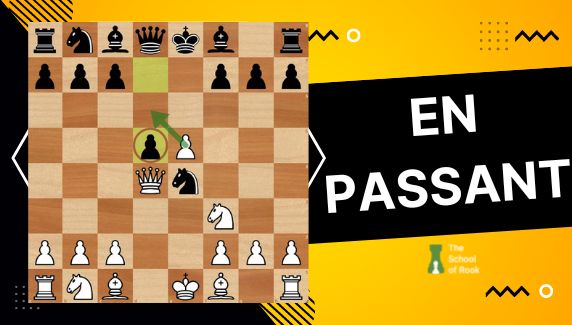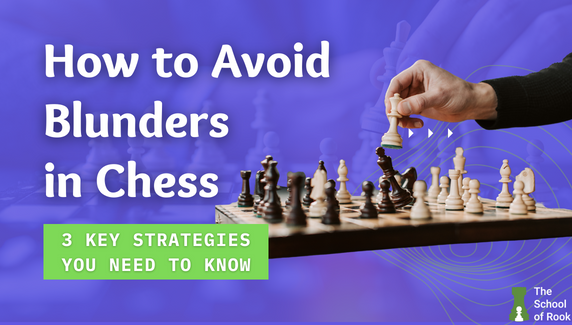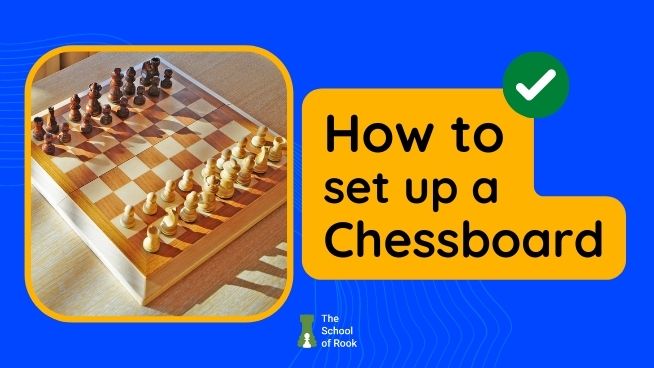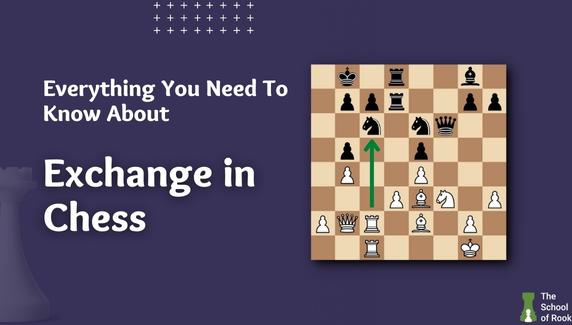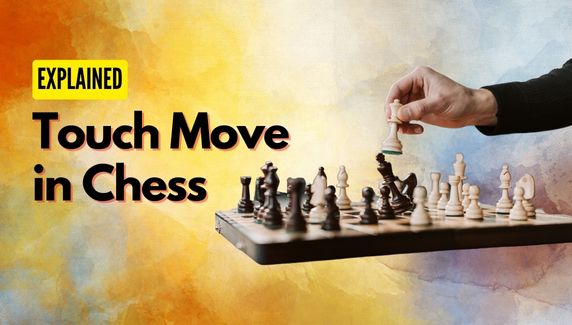
Resigning in chess or resignation is a formal act of giving up the game. Most people think resigning in chess is a sign of admitting defeat.
Although partially true, sometimes resigning can be the best move you can make. In this post, I’ll explain why people resign in chess and whether you should do it.
What is resigning in chess?
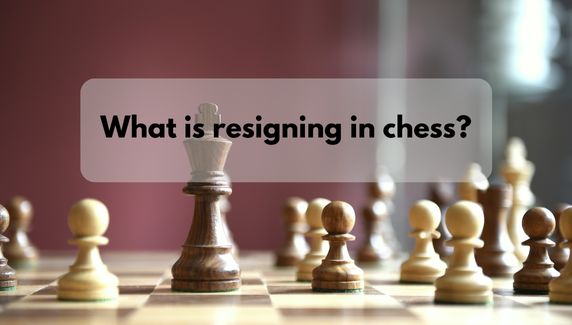
Resigning in chess is when you realize you have reached an unwinnable position and formally let your opponent know that you wish to quit the game.
This can be done any time during the game, even if it’s not your turn. There are many reasons why a player might choose to resign, such as being too far behind in material or having no way to avoid checkmate.
Since resignation means the game is over, there is no chance for a comeback. For this reason, most chess players will only resign when it is absolutely clear that they have lost.
Why do people resign in chess?
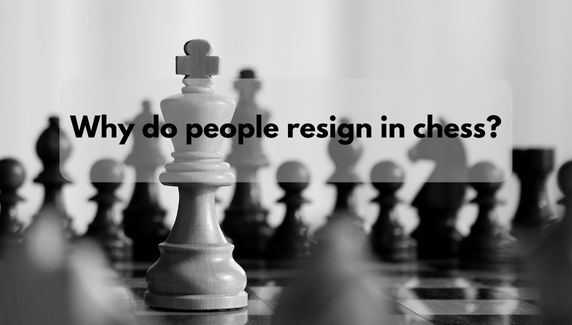
People resign in chess because they wish to end the game quickly, save time, or lose a valuable piece like a queen.
End the game quickly
Sometimes players realize that checkmate is imminent. Rather than get cornered and checkmated by the opponent, some players feel that they should resign to save their dignity.
Save time
Most often, advanced chess players resign to save time and prepare for the next round in a tournament.
Lose a valuable piece
After losing a major piece on board, some players resign from the game, knowing that their opponent can clearly take advantage of being a piece up and convert the game into a win.
When should you resign in chess?
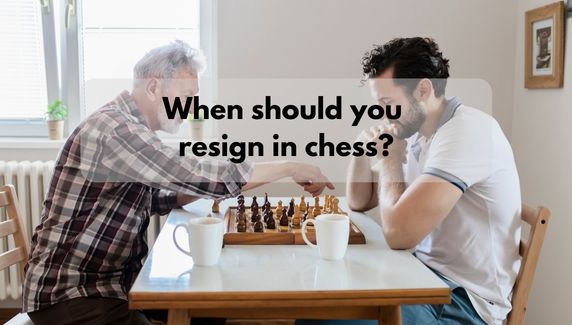
You should resign in chess when you feel like you can no longer win or draw the game.
It’s a personal call, but here are some factors to consider to help you know when you should resign:
The number of pieces remaining
If you have fewer pieces than your opponent, it’s going to be tough to win. You could resign and save yourself some time.
You can use the extra time to rest before the next round. Alternatively, spend time analyzing your loss and preparing for the next round.
Form of respect
When you’re in a terrible position against a player who is at least 200+ rating points ahead of you, you can choose to resign as a mark of respect. You know there’s no chance for you to win and that your opponent can checkmate you easily.
If you treat your opponent with respect, they might agree to analyze your game post-defeat. Rather than waste moves to play a losing game, you get free coaching from a player rated higher than you.
However, resigning as a form of respect makes more sense in OTB games than online games.
When should you not resign in chess?
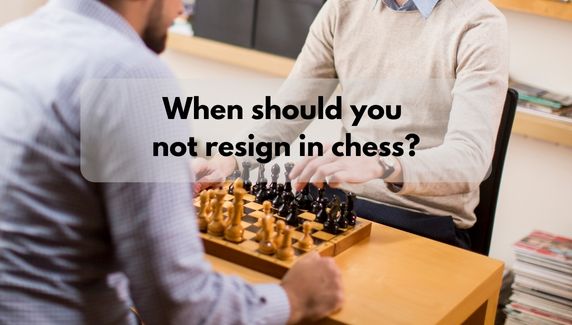
You should not resign from a game when you have lost a piece. Since chess is a war on board, anything can happen, and you may be able to turn the tide around to win the game.
If your opponent is overconfident, it may be advantageous to play on and try to take advantage of their emotional state. Additionally, if your opponent has made several blunders or mistakes in the past, it may be worth continuing the game in hopes that they make another mistake.
Finally, if the score is close and a draw is likely, it may be beneficial to play on and attempt to win the game.
Is it rude not to resign in chess?
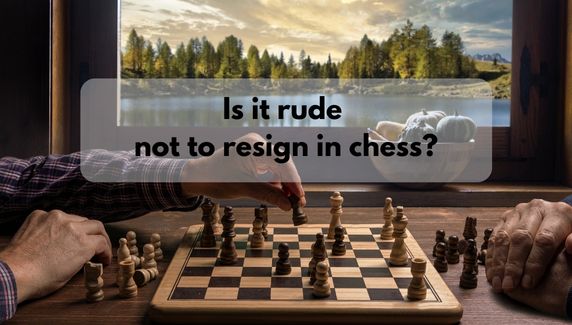
It may be rude not to resign in chess in certain situations, like when the position is truly unwinnable against a higher-rated player.
For instance, if you’re losing and there’s no scope to draw the game, resigning shows that you respect your opponent’s skills and concede defeat.
I remember when I was a kid playing against a rated player and had only king left on the board. I wanted to take my king into a corner and hoped somehow my opponent would stalemate me.
After the opponent checkmated me, a senior official advised me that resigning in such situations seems more polite.
I practice this rule today, too, and resign in games against highly rated players in OTB games. The only exception is when the time on the clock is less, and I can expect the opponent to make a blunder.
However, many players feel resigning in a chess game is a matter of personal preference. Some people think resigning is the best way to end a game, while others feel it is more sportsmanlike to play until the end.
There are pros and cons to both sides of the argument. Resigning can be seen as a way to show respect for your opponent by admitting defeat and ending the game quickly. However, some people see it as disrespectful because you are essentially giving up and not finishing the game.
How to resign: The resignation etiquette
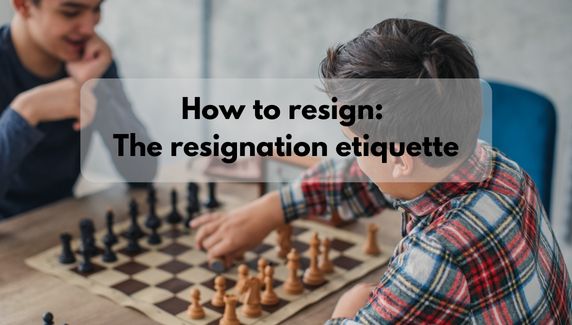
You can resign at any time during a game in the following three ways:
- You can say, “I resign.”
- You can simply write “resigns” or “1-0” if you’re Black or “0-1” if you’re White.
- You can tip the king and extend your hand for a handshake.
When you resign in chess, it is important to do so with dignity and grace. Here are some tips on how to resign properly:
- Thank your opponent for the game. No matter who wins or loses, a game of chess is always an enjoyable experience.
- Wish your opponent luck in future games. This is a simple gesture of good sportsmanship.
- Shake your opponent’s hand. This is another gesture of good sportsmanship and respect.
How is resignation recorded?
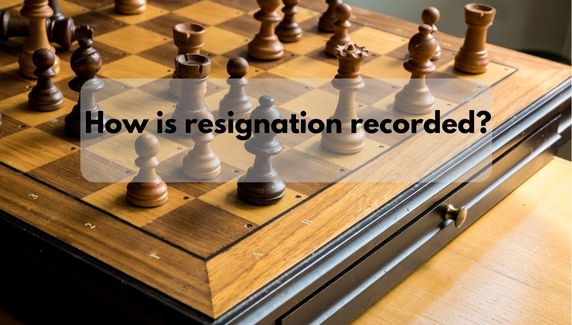
If you’re White and you resign, you write “0-1” on your score sheet. It indicates that White has not won any points, while Black has won 1 point.
Similarly, if you’re Black, you should write “1-0” on your score sheet when you resign.
Final thoughts: Resign in chess
In conclusion, resigning in chess can be the best option when you are hopelessly losing the game. It is better to lose one game than to continue playing and lose all chances of winning. When you resign, you can save face and perhaps even come back stronger next time.

